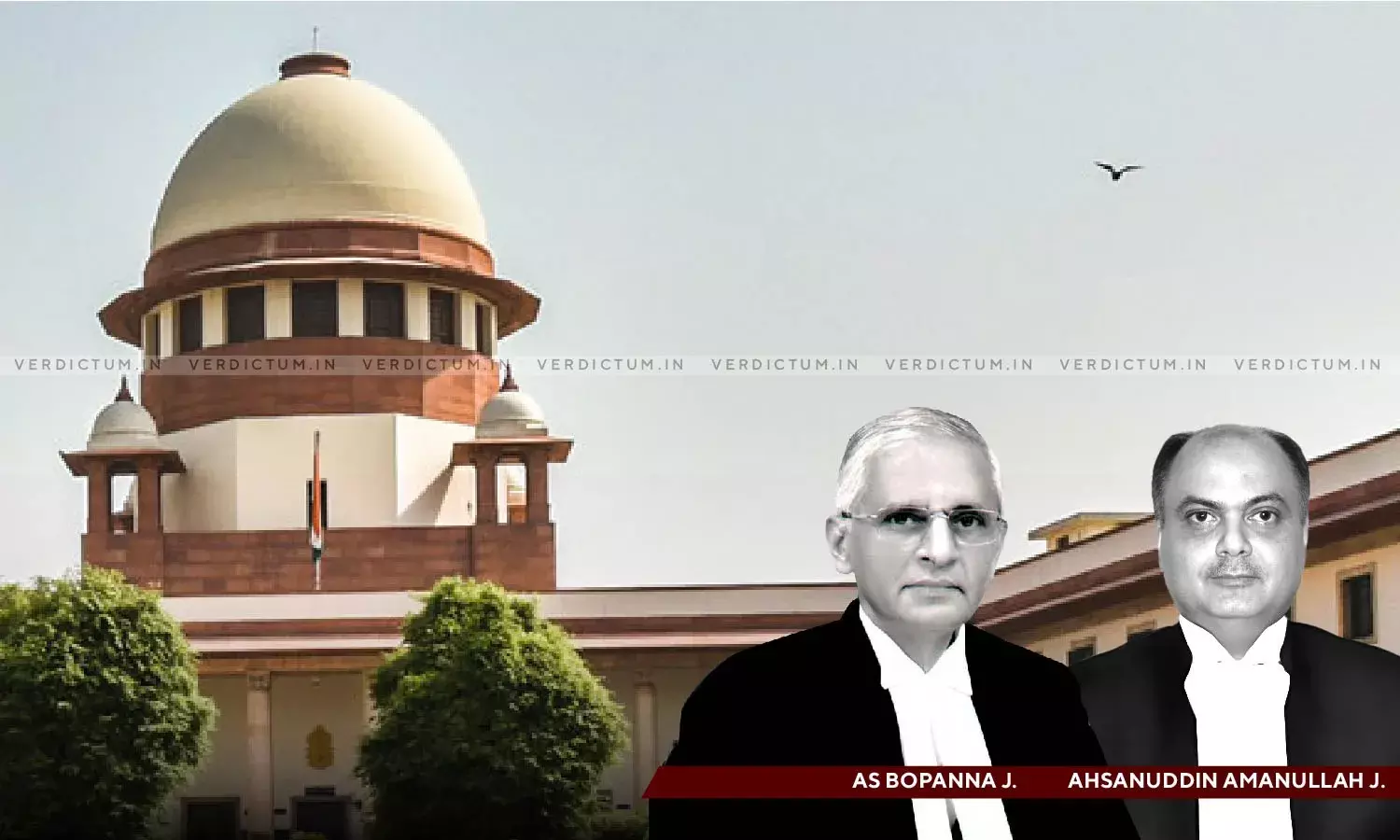Power To Transfer Investigation To CBI Or To Other Specialised Probe Agency Has To Be Used "Very Sparingly": SC
The Supreme Court on Tuesday said the power to transfer an investigation to the CBI or such other specialised probe agency has to be used "very sparingly" and in exceptional circumstances.
The apex court observed though there is no flexible guideline or a straightjacket formula laid down, the power to transfer the investigation is an "extraordinary power".
"It is to be used very sparingly and in an exceptional circumstance where the court on appreciating the facts and circumstance arrives at the conclusion that there is no other option of securing a fair trial without the intervention and investigation by the CBI or such other specialised investigating agency which has the expertise," a bench of Justices A S Bopanna and A Amanullah said.
The top court delivered its verdict on the appeals arising out of two judgements of the Chhattisgarh High Court which had declined the prayer for referring the investigation in a case related to the Narcotic Drugs and Psychotropic Substances (NDPS) Act, 1985, to the CBI.
One of the appellants, an automobile engineer, had claimed that he was taking care of his father's business and had travelled to Odisha in October 2020.
He alleged that he was staying at a hotel in Odisha's Angul district and on October 20, 2020, some police personnel of Chhattisgarh came there, abducted him and took him in their car to Raipur.
He claimed that later an FIR under the NDPS Act was lodged against him the next day alleging that he was apprehended at Raipur while attempting to sell contraband.
The state of Chhattisgarh, which was represented by Senior Advocate A M Singhvi and Advocate Sumeer Sodhi, had argued in the apex court that the allegations levelled by the appellants were unjustified and pursuant to the FIR, an investigation was conducted and charge sheet has also been filed.
"In that background, as noted, the case sought to be made out seeking for CBI investigation is on the allegation that the appellant no. one has been illegally detained and thereafter was charged with a serious offence, though he is completely innocent," the apex court noted in its judgement.
While taking note of the submissions made before it, the bench said "we do not find that there is any issue of public importance which requires to be unearthed by an investigation to be conducted by the CBI."
It said the allegations made against the police that the appellant was purportedly abducted from a different state and was in illegal detention, essentially would be the defence in the criminal trial.
"In addition, in the said process of the judicial proceedings if the appellants bring out the fact that the appellant no. one who was not involved, had been framed up and a case was foisted, the appellants would still have the legal remedy to take action for malicious prosecution, loss of reputation, action against involved persons, compensation and for such other relief in that regard," the bench said.
The apex court observed it is not convinced that in a case of the present nature, a direction to the CBI to hold an investigation would be justified nor is it required at this juncture when the trial in the judicial proceedings has progressed unhindered.
"Hence to that extent, all contentions of the appellants are kept open," the bench said, adding, "For all the aforestated reasons, we see no reason to interfere with orders impugned in these appeals."
With PTI Inputs




